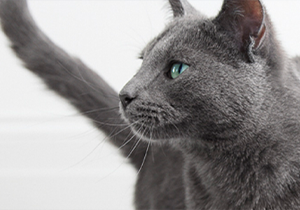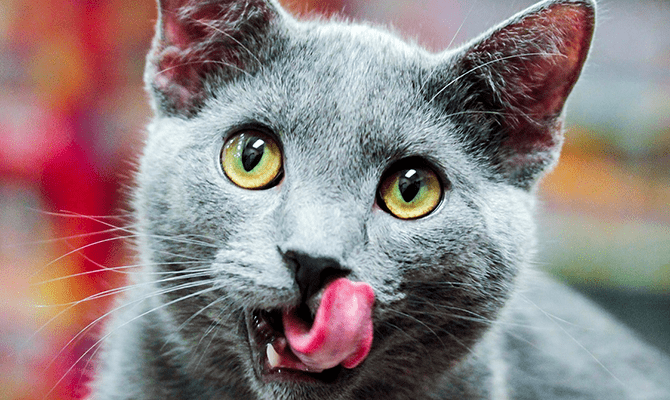Can Cats Drink Milk?
However, it might take you by surprise that in reality, adult cats are notoriously lactose intolerant and drinking milk for cats can cause them to experience gastrointestinal disorders such as indigestion and bloating.
In their kittenhood, feline furries are entirely dependent on their mothers' milk as the primary source of nutrition. Milk for cats can have several important health benefits for kittens, but as they grow older, cats gradually lose the ability to produce the necessary enzymes needed to digest milk. So this article answers questions like can kittens drink powdered milk, or is milk bad for cats?
Can kittens drink milk?
Wondering whether can cats drink milk? Right after birth till they are of 4 weeks, kittens are entirely reliant on their mother's milk, which contains important nutrients for their growth and well-being. This milk for cats is rich in colostrum and antibodies required by kittens in the early stages of their lives and is responsible for fortifying their immune system. Additionally, their mother's milk is also the primary source of hydration for kittens. So, is milk bad for cats or is milk good for cats?
Although cats can digest milk as kittens, they are only dependent on their mother's milk till they start weaning. By the time they turn 8 to 10 weeks old, kittens are completely weaned and ready to eat solid foods. Once they have weaned and can digest meat and animal derivatives, cats often stop producing the enzymes required to digest milk for cats. Since their body is no longer capable of breaking down lactose milk proteins, cats can no longer digest milk.
Why should cats not be given milk?
Can cats drink milk? The enzyme lactase is naturally produced in a cat's body and is responsible for digesting the cat drinking milk sugar, or lactose, present in milk. So, can cats drink milk? As kittens, lactase is produced so baby cats can digest their mother’s milk. While it is true that can kittens drink powdered milk, but once feline fur babies turn 6 weeks of age, they start weaning and are able to transition from being reliable on their mother's milk for nutrition to being able to digest solid food, such as meat and animal fat. So, is milk bad for cats?
As carnivores, an adult cat's natural diet contains a large percentage of meat and they no longer rely on milk for nutrients. As a result, once they have completely weaned by the age of 8 to 10 weeks, cats gradually lose the ability to produce the enzyme lactase and hence they slowly lose the ability to digest lactose present in milk for cats. Most adult cats are, thus, usually highly lactose intolerant. So, is milk bad for cats? This is why it is unwise to offer milk to adult cats as it can cause gastrointestinal distress, leading to diarrhoea, indigestion, and other health issues.
Are some cats able to drink milk?

Are you wondering is milk good for cats? Although most cats are lactose intolerant, the same cannot be said for all cats. Even in their adulthood, some cats can still successfully digest the lactose in milk for cats without developing any health disorders or indigestion. However, it is still unwise to offer milk regularly to adult cats for several reasons, such as:
- As carnivores, the natural diet of cats should consist mostly of meat, poultry, and animal fat. Feeding it milk for cats might not be enough to supplement the appropriate nutrients or provide sufficient nutrition as required by adult cats.
- Are you thinking can cats drink milk? Having milk as a staple for your cat's diet may cause your royal furry to fill up on milk, often ruining its appetite. Furthermore, cat drinking milk can also cause cats to avoid the variety of food necessary for maintaining good feline health and may lead to health disorders such as malnutrition and other health problems.
Why do adult cats crave milk?
Cats are foodies who prefer a variety in their everyday palette. So, can cats drink milk and is milk good for cats? Although they are lactose intolerant, it rarely stops our mystical kitties from saying no if they are offered cat drinking milk. So, this often causes cats to experience gastrointestinal distress followed by indigestion and diarrhoea even though they are unaware of what might be causing it.
Additionally, as kittens, cats are completely reliant on their mother's milk for nutrition and hydration, which creates a positive association of old memories with the taste of milk for cats, causing them to drink milk as a comfort food. Adult cats can also prefer milk to the bland taste of water.
Still worried whether is milk good for cats? The fact remains that feline furries are lactose intolerant and should avoid cat drinking milk as adults. So, as responsible cat parents, it is important to keep milk away from your furry's reach, so that they don't crave or consume it.
Adverse effects of consuming milk on cats

Drinking milk can have several adverse effects on cats, such as:
-
Stomach upset:
Milk cannot be naturally broken down by the digestive enzymes produced by adult cats, leading to indigestion and stomach upset.
-
Diarrhoea:
Diarrhoea is a common symptom associated with stomach upset in cats, since the lactose sugar cannot be digested by adult cats.
-
Gassiness:
Being lactose intolerant, drinking milk can cause gassiness in cats, often leading to flatulence.
-
Bloating:
Bloating is a common symptom of gassiness and stomach upset in adult cats, caused from drinking milk for cats.
Conclusion
Can cats drink milk? While drinking milk is generally not advisable for adult cats, it is important for cat parents to know that safe milk for cats is not toxic in nature and does not lead to any life-threatening health concerns. So, if your royal kittiness is craving milk, you can offer it milk in controlled portions so that it does not experience any gastrointestinal discomfort.
Cats also require sufficient hydration on an everyday basis, and if your cat is not taken to drinking water, adding a little milk suitable for cats can do the trick of getting them to drink more. The reason is cats often prefer the creamy flavour of milk to water and can enjoy drinking a few sips without suffering from indigestion. You can also consider adding wet food such as Sheba premium wet cat food or cat treats can also contribute to keeping your feline fur kiddo hydrated.
FAQs
-
How much milk should I give my cat?
Although drinking milk can cause indigestion in cats, it is not toxic in nature, and can be offered to your furry feline in controlled portions. Generally, a few sips are sufficient if your cat is craving milk suitable for cats.
-
Is powdered milk safe for kittens?
Kittens are entirely dependent on their mother's milk for cats for hydration and nutrition. However, if your kitten has been separated from its mother, powdered milk formula prescribed by a veterinarian can be a viable alternative to its mother’s milk.
-
Why do cats love milk?
Cats love the deliciously creamy flavour of milk. In addition, cats love milk as it has several positive associations for cats with their mother and safe milk for cats is a comfort food that reminds them of memories as kittens.
-
What is the best milk for cats?
Undoubtedly, their mother's milk containing colostrum is the best milk suitable for cats as it is rich in essential nutrients and antibodies necessary for developing their immune system. Furthermore, kittens also fulfil their daily hydration needs from their mother's milk.
-
What milk can replace cat milk?
While there is no substitute for a mother's milk, which is safe milk for cats and kittens, as it is rich in nutrients and necessary antibodies, veterinary-recommended milk formula or milk suitable for cats can also be a good alternative.










